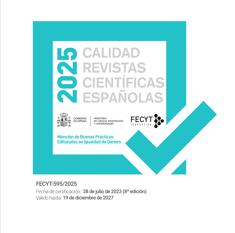Inequity in Muslim cemeteries in Catalonia
DOI:
https://doi.org/10.15257/ehquidad.2025.0020Keywords:
Islamic cemeteries, Covid-19, Religious freedom, Funeral spaces, Cooperation agreement.Abstract
The issue of Muslim cemeteries came to the fore in different regions of Spain, and especially in Catalonia, with the emergence of the COVID-19 pandemic and its consequences for the Muslim community (especially the Moroccan community, considered the majority). The resulting increase in deaths has once again brought to the forefront the shortage of burial spaces and funeral services for Muslims in Catalonia, especially among the Moroccan community, which still cannot find more funeral spaces that comply with their religious requirements and the fundamental right to religious freedom and worship. This article addresses this issue and analyzes the reactions and requests made by these Muslim communities within the framework of the rights and agreements signed with the Spanish government in 1992, primarily considering the difficulties in implementing these agreements, as well as the opinions and discourses of those involved in the issue and, at the same time, the practices and initiatives that have been implemented, as well as the plans envisaged for the near future.
Downloads
References
Ashayeri, N., y Vasigh, B. (2023). A Research on the Recognition of Types & Motifs of the Graves in Historical Cemeteries of Somghan Village (Fars Province). Negareh Journal, 18(66), 165-179. doi: 10.22070/negareh.2021.14643.2810
Carvajal Contreras, M. Á., y Castilla Vázquez, M. D. C. (2024). Religiones para el público: diversidad religiosa y promoción patrimonial y turística en la España contemporánea. Ilu. Revista de Ciencias de las Religiones. 29, e95665. https://doi.org/10.5209/ilur.95665
Direcció General d’Afers Religiosos (2018). Guía per al respecte a la diversitat de creences als cementiris de Catalunya.
Gleize Y, Mendisco F, Pemonge M-H, Hubert C, Groppi A, Houix B, et al. (2016) Early Medieval Muslim Graves in France: First Archaeological, Anthropological and Palaeogenomic Evidence. PLoS ONE, 11(2). e0148583. https://doi.org/10.1371/journal.pone.0148583
Mañas Bajo, L. (2023). La gestió local dels enterraments islàmics en el context de ciutats mitjanes. Facultat de Ciències Polítiques I., Sociologia Màster Oficial en Política Social, and Treball I. Benestar.
Moreras, J. (1999). Musulmanes en Barcelona espacios y dinámicas comunitarias. CIDOB edicions.
Moreras, J., y Arraràs, A. S. (2014). Espais de mort i diversitat religiosa: la presència de l'islam als cementiris i tanatoris catalans. Generalitat de Catalunya, Departament de Cultura.
Salguero, Ó. y Siguero, A. (2021). La cuestión funeraria islámica: el “enquistado caso de la metrópolis madrileña. Revista de Estudios Internacionales Mediterráneos, 31, 108-127. https://doi.org/10.15366/reim2021.31.006
Salguero, Ó. (2023). Cementerios musulmanes y derecho a la ciudad: necesidades y demandas de las comunidades musulmanas en España. Revista del Museo de Antropología, 16(3), 323-334.
Salguero Montaño, Ó. y Gil-Benumeya Flores, D. (2024). Nuevas reivindicaciones de las comunidades musulmanas sobre la cuestión funeraria islámica: el caso del cementerio musulmán de Zaragoza. Miscelánea De Estudios Árabes Y Hebraicos. Sección Árabe-Islam, 73, 283–319. https://doi.org/10.30827/meaharabe.v73.26569
Seglers. À. (2004). Musulmans a Catalunya. El repte de la integració i la llibertat religiosa. Angle Editorial.
Solé Arraràs, A. (2015). Ritos funerarios islámicos trasnacionales entre Catalunya y Kolda (Senegal). La construcción de la transnacionalidad desde la práctica religiosa y ritual. REIM, Revista de estudios internacionales Mediterráneos, 16, 1-16. https://doi.org/10.15366/reim2014.16.008
Taboada, A. R. (2019). La gestión de los cementerios históricos en el marco del planeamiento contemporáneo: la necrópolis judía de Toledo. Miscelánea de Estudios Árabes y Hebraicos. Sección Hebreo, 68, 51-71. https://doi.org/10.30827/meahhebreo.v68i0.1027
Tarrés, S. (2006). Ritos funerarios en el islam: La praxis entre los musulmanes de Sevilla. Zainak, 28, 423-440.
Tarrés, S., y Moreras, J. (2012). Patrimonio cultural funerario. Los cementerios de las minorías religiosas en España. En Geopolíticas patrimoniales. De culturas, naturalezas e inmaterialidades, una mirada etnográfica (pp. 267-283). Germanía.
Ura, N. Y. (2025). Muslim bodies in secular European cemeteries. Ethnicities. 0(0). https://doi.org/10.1177/14687968251327284.












